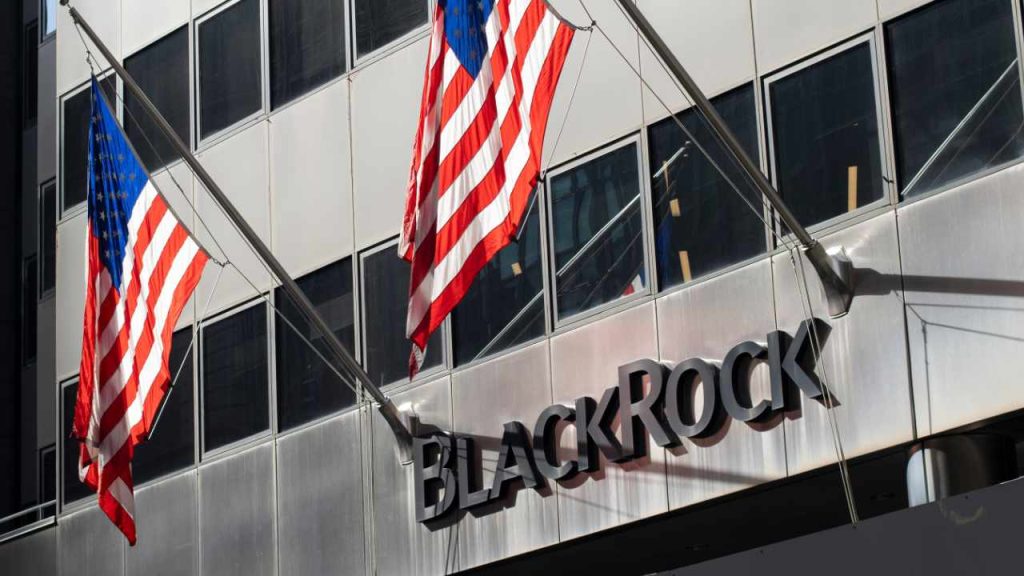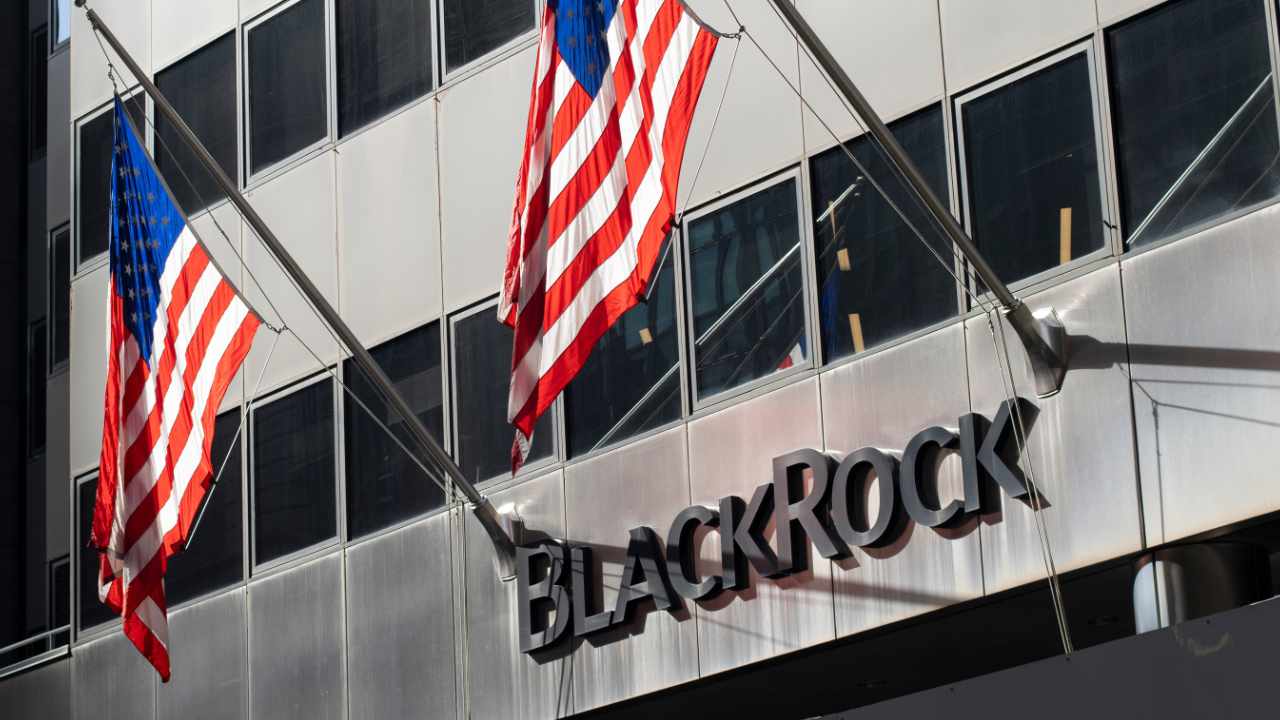
The financial world is witnessing a seismic shift as traditional investment giants embrace cryptocurrencies, and BlackRock’s Bitcoin ETF (IBIT) is at the epicenter of this transformation. The world’s largest asset manager has not only introduced a Bitcoin ETF but has also seen it outperform its flagship S&P 500 fund in fee revenue—a development that underscores the growing institutional acceptance of digital assets. This phenomenon is more than just a financial milestone; it represents a fundamental reorientation of investment strategies, market dynamics, and the broader economic landscape.
The Rise of IBIT: A New Investment Paradigm
BlackRock’s iShares Bitcoin Trust (IBIT) has rapidly become a dominant force in the Bitcoin ETF market, driven by several key factors. First, BlackRock’s unparalleled brand recognition and reputation as a trusted asset manager provided IBIT with an immediate advantage. Investors, particularly institutional players, were more inclined to trust a product backed by a firm with a long-standing history of regulatory compliance and financial stability. BlackRock’s aggressive advocacy for a spot Bitcoin ETF further solidified its position as a leader in this emerging market.
Convenience and accessibility were also critical to IBIT’s success. Unlike direct Bitcoin investments, which require navigating complex wallets and security protocols, IBIT offers a familiar and regulated ETF structure. This simplicity is particularly appealing to institutional investors and those new to cryptocurrency, who can now gain exposure to Bitcoin without the technical complexities. Additionally, IBIT’s competitive fee structure makes it an attractive option for cost-conscious investors, further fueling its rapid adoption.
The timing of IBIT’s launch was also strategic. It coincided with a surge in institutional interest in Bitcoin, as more investors sought to diversify their portfolios with digital assets. BlackRock’s marketing efforts amplified this demand, positioning IBIT as the go-to Bitcoin ETF for both retail and institutional investors.
A Symbolic Victory: Bitcoin ETFs Overtake Traditional Funds
The fact that IBIT is now generating more fee revenue than BlackRock’s flagship S&P 500 fund is a watershed moment for the cryptocurrency market. This development is not just about the numbers; it symbolizes a broader shift in investor sentiment and risk perception. The S&P 500 fund has long been the bedrock of traditional investment portfolios, representing a diversified basket of the largest U.S. companies. For a Bitcoin ETF to surpass it in fee generation signals a fundamental change in how investors view Bitcoin—not just as a speculative asset but as a legitimate and valuable component of a balanced portfolio.
This shift is particularly significant for institutional investors, who have historically been cautious about allocating capital to cryptocurrencies. The success of IBIT suggests that these investors are increasingly comfortable with Bitcoin as an asset class, driven by its potential for high returns and its role as a hedge against inflation and economic uncertainty. The endorsement of a major asset manager like BlackRock further legitimizes Bitcoin, making it more palatable for risk-averse investors.
The Broader Impact on the Crypto Market
IBIT’s success has had a ripple effect across the broader crypto market, contributing to increased liquidity, trading volumes, and price appreciation. The launch of Bitcoin ETF options, starting with IBIT, has enhanced market liquidity by providing investors with more tools to manage risk and capitalize on market movements. This increased liquidity has reduced volatility, making Bitcoin a more attractive investment for a wider range of participants.
Moreover, IBIT has played a crucial role in mainstreaming cryptocurrency. By offering a regulated and accessible investment vehicle, BlackRock has made Bitcoin more approachable for traditional investors who may have been deterred by the complexities of direct ownership. This increased accessibility has encouraged greater adoption and integration of Bitcoin into traditional financial systems, further solidifying its position as a legitimate asset class.
The influx of capital into IBIT has also contributed to Bitcoin’s price appreciation, creating a virtuous cycle of demand. As more investors allocate capital to Bitcoin ETFs, the price of Bitcoin rises, attracting even more investors. This dynamic has the potential to sustain long-term growth in the crypto market, benefiting both retail and institutional investors.
Challenges and Future Considerations
Despite its success, IBIT and the broader Bitcoin ETF market face several challenges. Bitcoin remains a highly volatile asset, and IBIT’s performance is directly tied to the price fluctuations of Bitcoin. This volatility can deter some investors, particularly those with a lower risk tolerance. Additionally, the regulatory landscape for cryptocurrencies is still evolving, and changes in regulations could impact IBIT’s operations and performance. For example, the iShares Bitcoin Trust ETF is not an investment company registered under the Investment Company Act of 1940, meaning it is not subject to the same regulatory requirements as mutual funds or ETFs registered under that Act.
Competition in the Bitcoin ETF market is also intensifying, with new entrants vying for market share. IBIT will need to continue innovating and differentiating itself to maintain its leadership position. Furthermore, while IBIT has experienced significant inflows, it is also subject to outflows, as demonstrated by a recent record outflow of US$333 million. These outflows can be driven by changes in market sentiment or broader economic conditions, highlighting the need for careful risk management.
Beyond Bitcoin: The Future of Digital Asset Investments
BlackRock’s success with IBIT may be just the beginning. The company’s foray into Bitcoin ETFs could pave the way for similar ETFs based on other cryptocurrencies or digital assets. This expansion would further democratize access to the crypto market, allowing investors to diversify their portfolios with a broader range of digital assets. Additionally, BlackRock’s support for innovative energy technologies suggests a broader vision that aligns with the evolving landscape of sustainable investments. This forward-thinking approach positions BlackRock as a key player in shaping the future of finance.
Conclusion: A New Era of Investment
BlackRock’s Bitcoin ETF, IBIT, has undeniably disrupted the investment landscape. Its rapid ascent to prominence, culminating in surpassing its flagship S&P 500 fund in fee generation, marks a pivotal moment for the cryptocurrency market. While challenges remain, IBIT’s success signals a new era of investment, one where digital assets are increasingly integrated into mainstream portfolios. The long-term implications of this shift are yet to be fully realized, but one thing is clear: the financial world is changing, and BlackRock is leading the charge. The emergence of IBIT is a testament to the growing demand for crypto exposure and the transformative power of innovation in the financial industry. As institutional adoption continues to rise, we can expect to see further evolution in the landscape, with Bitcoin and other digital assets playing an increasingly prominent role in the portfolios of investors worldwide. IBIT’s story is not just about Bitcoin; it’s about the future of investment itself.





